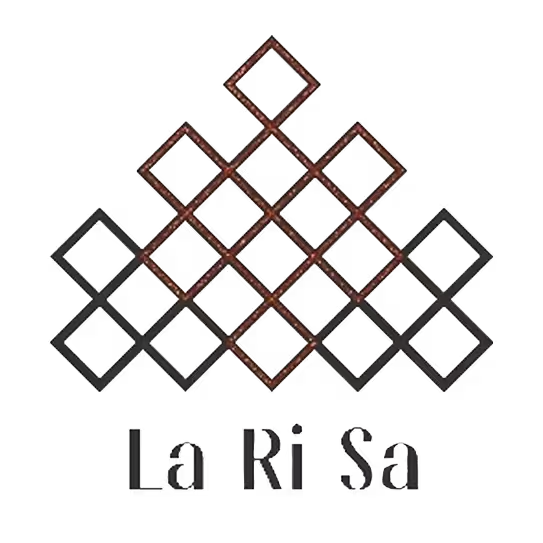As the global population continues to grow, so does the challenge of waste management. The increasing volume of waste generated poses significant threats to our environment, public health, and quality of life. However, community programs are stepping up to address these challenges, leading the charge in innovative waste management solutions. Among these initiatives, LaRiSa Resorts exemplifies how hospitality can play a pivotal role in promoting sustainable practices and engaging local communities in waste management efforts.
The Importance of Community-Based Waste Management
Community-based waste management programs focus on empowering local residents to take an active role in managing their waste. These programs emphasize collaboration between local governments, non-profits, businesses, and residents to create effective waste management systems. The benefits of such approaches include:
1. Increased Awareness
Educating community members about the importance of waste reduction and recycling fosters a culture of sustainability.
2. Local Engagement
When residents are involved in decision-making processes, they are more likely to participate actively in waste management initiatives.
3. Resource Efficiency
Community programs can optimize resource use by promoting recycling and composting, thereby reducing landfill contributions.
LaRiSa Resorts: A Model for Sustainable Waste Management

LaRiSa Resorts is a prime example of how the hospitality industry can lead in sustainable practices while engaging with local communities. By implementing innovative waste management strategies, LaRiSa not only reduces its environmental footprint but also inspires guests and local residents to adopt similar practices.
1. Waste Segregation and Recycling Initiatives
At LaRiSa Resorts, waste segregation is a fundamental practice. The resort has established a comprehensive waste management system that includes:
1. On-Site Waste Separation
Different types of waste�organic, recyclable, and non-recyclable�are separated at the source. This practice ensures that recyclable materials are diverted from landfills.
2. Partnerships with Recycling Companies
LaRiSa collaborates with licensed waste collection and recycling companies to ensure that materials are processed appropriately. This partnership enhances the efficiency of recycling efforts and promotes responsible disposal.
By prioritizing waste segregation and recycling, LaRiSa Resorts sets an example for both guests and local communities on the importance of reducing waste.
2. Composting Organic Waste
Another significant initiative at LaRiSa is the composting of organic waste generated by the resort�s kitchens and landscaping activities. Composting not only reduces the volume of waste sent to landfills but also creates nutrient-rich soil that can be used for gardening and landscaping within the resort.
1. Educational Workshops
LaRiSa conducts workshops for guests and local residents on composting techniques. These workshops empower participants to implement composting practices at home, further contributing to community-wide waste reduction efforts.
3. Community Engagement Programs
LaRiSa Resorts actively engages with the surrounding community through various programs aimed at promoting sustainable practices:
1. Clean-Up Drives
The resort organizes regular clean-up events where staff members and local volunteers come together to clean up nearby beaches, parks, or other public spaces. These events not only beautify the area but also raise awareness about littering and its environmental impacts.
2. Sustainability Education
LaRiSa provides educational materials and resources to local schools and community centers, emphasizing the importance of responsible waste management practices.
By fostering community engagement, LaRiSa encourages residents to take ownership of their environment and contribute to sustainable practices.
Innovative Waste Management Strategies

Community programs like those implemented by LaRiSa Resorts highlight several innovative strategies that can be adopted by other organizations and communities:
1.Technology Integration
Utilizing technology can enhance waste management efforts significantly:
1. Smart Bins
Implementing smart bins equipped with sensors can help monitor fill levels in real time, optimizing collection routes and reducing operational costs.
2. Mobile Apps for Reporting
Developing mobile applications that allow residents to report issues related to litter or illegal dumping can foster community involvement and prompt timely responses from local authorities.
2. Incentive Programs
Creating incentive programs can motivate individuals and businesses to participate actively in waste reduction efforts:
1. Rewards for Recycling
Offering discounts or rewards for households that consistently recycle or compost can encourage participation.
2. Recognition Programs
Recognizing businesses or individuals who excel in sustainable practices can inspire others to follow suit.
3. Collaboration with Local Businesses
Partnering with local businesses can amplify the impact of community-based waste management programs:
1. Sustainable Supply Chains
Encouraging local businesses to adopt sustainable practices�such as reducing packaging or using biodegradable materials�can contribute significantly to overall waste reduction.
2. Joint Initiatives
Collaborative events between resorts like LaRiSa and local businesses can promote sustainability while benefiting both parties economically.
Challenges in Community Waste Management
While community-based programs have proven effective, they also face challenges:
1. Funding Limitations
Many initiatives rely on grants or donations for funding, which may not always be reliable.
2. Resistance to Change
Some community members may be resistant to adopting new practices or may lack awareness about their importance.
3. Infrastructure Needs
Developing adequate facilities for recycling and composting requires significant investment and planning.
Conclusion
Community programs are leading the charge in addressing the pressing issue of waste management through innovative solutions that engage residents and promote sustainability. LaRiSa Resorts serves as a model for how hospitality businesses can contribute positively to their communities by implementing effective waste management strategies.
By prioritizing education, engagement, recycling, composting, and collaboration with local stakeholders, these programs not only reduce environmental impact but also foster a sense of responsibility among community members. As we face increasing challenges related to waste generation and pollution, embracing community-driven solutions will be essential for creating a cleaner, healthier future for all.
Through initiatives like those at LaRiSa Resorts, we can inspire change at both local and global levels�demonstrating that when communities come together with a shared vision for sustainability, meaningful progress is possible.



